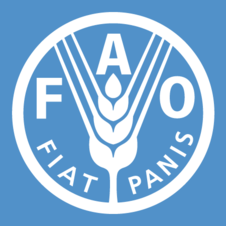Psychological characteristics, lifestyles and eating habits in university students in Medellín, Colombia
DOI:
https://doi.org/10.29105/respyn21.2-3Keywords:
college students, , depression, feedingAbstract
Introduction: There is a relationship between psychological characteristics such as anxiety, fear, and sadness, with lifestyles and eating habits, specifically in the university population. Objective: To describe the psychological characteristics, lifestyles and eating habits of first-semester students at a private university in Medellín, Colombia during the years 2015-2018. Material and method: Observational, descriptive, retrospective study, from secondary sources and with an analytical tendency. The data obtained from an ad hoc questionnaire applied to first-semester students from a private university were taken that investigated their perception of some psychological characteristics, lifestyles and eating habits. Results: A statistically significant association was found between suicidal ideation and meat consumption, as well as sugar consumption with the presence of fear. Proportionally inverse relationship between fruit consumption and the presence of anxiety and sadness. Conclusions: These statistics are of great relevance because they show the need to create plans and projects focused on improving the life habits of students who are beginning to enter university life, since their development will depend on this during their career. Diets low in fat and sugars, but rich in fruits and vegetables, are recommended as elements that can reduce the presence of problems related to mental health.
Downloads
References
American Psychological Association. (2010). Trastornos de la ansiedad: el papel de la psicoterapia en el tratamiento eficaz. APA. https://www.apa.org/topics/anxiety/tratamiento
Angelucci, L. T., Cañoto, Y., & Hernández, M. J. (2017). Influencia del estilo de vida, el sexo, la edad y el IMC sobre la salud física y psicológica en jóvenes universitarios. Avances en Psicología Latinoamericana, 35(3), 531. https://doi.org/10.12804/revistas.urosario.edu.co/apl/a.4454 DOI: https://doi.org/10.12804/revistas.urosario.edu.co/apl/a.4454
Akbaraly TN, Brunner EJ, Ferrie JE, Marmot MG, Kivimaki M, et al. (2009) Dietary pattern and depressive symptoms in middle age. Br J Psychiatry 195: 408-413. DOI: https://doi.org/10.1192/bjp.bp.108.058925
Ariza, L. M. F., Durán, M. C. A., Cubillos, Z. J. D., & Campo-Arias, A. (2006). Consistencia interna y análisis de factores de la escala APGAR para evaluar el funcionamiento familiar en estudiantes de básica secundaria. Revista Colombiana de Psiquiatría, 1, 7.
Becerra Bulla, F., Pinzón Villate, G., Vargas Zarate, M., Martínez Marín, E. M., & Callejas Malpica, E. F. (2016). Cambios en el estado nutricional y hábitos alimentarios de estudiantes universitarios. Bogotá, D.C. 2013. Revista de la Facultad de Medicina, 64(2), 249. https://doi.org/10.15446/revfacmed.v64n2.50722 DOI: https://doi.org/10.15446/revfacmed.v64n2.50722
Bejarano, S. J. L. (2016). Guía de entornos y estilos de vida saludable. 83.
Borda Mariela, Santos Mario Alonso, Martínez Héctor, Meriño Elieth, Sánchez Juan, & Solano Stephanie. (2016). Percepción de la imagen corporal y su relación con el estado nutricional y emocional en escolares de 10 a 13 años de tres escuelas en Barranquilla (Colombia). Salud Uninorte, 32(3), 372-482. DOI: https://doi.org/10.14482/sun.32.2.9747
Buendía J, Riquelme A, Ruiz J. El suicidio en adolescentes. Factores implicados en el comportamiento suicida. Murcia: Universidad de Murcia, EDITUM; 2004.
Díaz-Cárdenas, S., Tirado-Amador, L., & Simancas-Pallares, M. (2017). Validez de constructo y confiabilidad de la APGAR familiar en pacientes odontológicos adultos de Cartagena, Colombia. Rev Univ Ind Santander Salud. 2017; 49(4): 541-548. https://doi.org/10.18273/revsal.v49n4-2017003 DOI: https://doi.org/10.18273/revsal.v49n4-2017003
El Ansari, W., Adetunji, H., & Oskrochi, R. (2014). Food and mental health: relationship between food and perceived stress and depressive symptoms among university students in the United Kingdom. Central European Journal of Public Health, 22(2), 90-97. https://doi.org/10.21101/cejph.a3941 DOI: https://doi.org/10.21101/cejph.a3941
Fakhoury, M. (2016). Revisiting the Serotonin Hypothesis: Implications for Major Depressive Disorders. Molecular Neurobiology, 53(5), 2778-2786. https://doi.org/10.1007/s12035-015-9152-z DOI: https://doi.org/10.1007/s12035-015-9152-z
Fernández, C. S., & Vicente, L. A. (s. f.). LA IMPORTANCIA DE LA ALIMENTACIÓN EN EL DESARROLLO DE LAS FUNCIONES COGNITIVAS DEL NIÑO. 65.
Finlayson, G., Cecil, J., Higgs, S., Hill, A., & Hetherington, M. (2012). Susceptibility to weight gain. Eating behaviour traits and physical activity as predictors of weight gain during the first year of university. Appetite, 58(3), 1091-1098. https://doi.org/10.1016/j.appet.2012.03.003 DOI: https://doi.org/10.1016/j.appet.2012.03.003
García, A. M., Velázquez, M. N., & Bernal, A. I. G. (2016). Alimentación saludable. Acta Médica de Cuba, 17(1). https://www.medigraphic.com/cgi-bin/new/resumen.cgi?IDARTICULO=68525
Gómez, E., Daza, A., Angeles, S., Barbabosa, R., & Gomez, P. (sf). PSICOLOGIA DEL MIEDO. Boletín de la Universidad de Granada. Universidad de Granada.
Jacob, L., Stubbs, B., Firth, J., Smith, L., Haro, J. M., & Koyanagi, A. (2020). Fast food consumption and suicide attempts among adolescents aged 12–15 years from 32 countries. Journal of Affective Disorders, 266, 63-70. https://doi.org/10.1016/j.jad.2020.01.130 DOI: https://doi.org/10.1016/j.jad.2020.01.130
Lindseth, G., Helland, B., & Caspers, J. (2015). The effects of dietary tryptophan on affective disorders. Archives of Psychiatric Nursing, 29(2), 102-107. https://doi.org/10.1016/j.apnu.2014.11.008 DOI: https://doi.org/10.1016/j.apnu.2014.11.008
Maes, M., Kubera, M., Obuchowiczwa, E., Goehler, L., & Brzeszcz, J. (2011). Depression’s multiple comorbidities explained by (neuro)inflammatory and oxidative & nitrosative stress pathways. Neuro Endocrinology Letters, 32(1), 7-24.
Márquez MO. (2016). Depresión y calidad de la dieta: revisión bibliográfica. 2016, 12, 1-6. https://doi.org/10.3823/1282
Mayorga-Lascano, M., Moreta-Herrera, R., Mayorga-Lascano, M., & Moreta-Herrera, R. (2019). Síntomas clínicos, subclínicos y necesidades de atención psicológica en estudiantes universitarios con bajo rendimiento. Revista Educación, 43(2), 452-467. https://doi.org/10.15517/revedu.v43i2.32239 DOI: https://doi.org/10.15517/revedu.v43i2.32239
Ministerio de salud MINSALUD. (2018). Boletín de salud mental Salud mental en niños, niñas y adolescentes. MINSALUD. https://www.minsalud.gov.co/sites/rid/Lists/BibliotecaDigital/RIDE/VS/PP/ENT/boletin-4-salud-mental-nna-2017.pdf
Morales Rodríguez, F. M. (2018). Estrategias de afrontamiento en una muestra de estudiantes universitarios. International Journal of Developmental and Educational Psychology. Revista INFAD de Psicología., 2(1), 289. https://doi.org/10.17060/ijodaep.2018.n1.v2.1228 DOI: https://doi.org/10.17060/ijodaep.2018.n1.v2.1228
Nikolaou, C. K., Hankey, C. R., & Lean, M. E. J. (2015). Weight changes in young adults: a mixed-methods study. International Journal of Obesity, 39(3), 508-513. https://doi.org/10.1038/ijo.2014.160 DOI: https://doi.org/10.1038/ijo.2014.160
Oda-Montecinos, C., Saldaña, C., Beyle, C., Andrés, A., Moya-Vergara, R., & Véliz-García, O. (2018). Body dissatisfaction and abnormal eating behaviors in a community sample of Chilean adults / Insatisfacción corporal y comportamientos alimentarios anómalos en una muestra comunitaria de adultos chilenos. Revista Mexicana de Trastornos Alimentarios / Mexican Journal of Eating Disorders, 9(1), 57-70. https://doi.org/10.22201/fesi.20071523e.2018.1.479 DOI: https://doi.org/10.22201/fesi.20071523e.2018.1.479
Organización de las Naciones Unidas para la Alimentación y la Agricultura FAO & Instituto Colombiano de Bienestar Familiar ICB. (2020). Guías alimentarias basadas en alimentos para la población colombiana mayor de 2 años. https://www.minsalud.gov.co/sites/rid/Lists/BibliotecaDigital/RIDE/VS/PP/SNA/guias-alimentarias-basadas-en-alimentos.pdf
Organización Mundial de la Salud. (s. f.). Body mass index - BMI. de https://www.euro.who.int/en/health-topics/disease-prevention/nutrition/a-healthy-lifestyle/body-mass-index-bmi
Pan, X., Zhang, C., & Shi, Z. (2011). Soft drink and sweet food consumption and suicidal behaviours among Chinese adolescents. Acta Paediatrica, 100(11), e215-e222. https://doi.org/10.1111/j.1651-2227.2011.02369.x DOI: https://doi.org/10.1111/j.1651-2227.2011.02369.x
Pérez, G. C. (2012). DE LA TRISTEZA A LA DEPRESIÓN. 4, 16. https://www.iztacala.unam.mx/carreras/psicologia/psiclin/vol15num4/Vol15No4Art8.pdf
Rodrigo, C. P., Aranceta, J., Salvador, G., & Varela-Moreiras, G. (2015). Métodos de Frecuencia de consumo alimentario. 8.
Rodríguez, J. J., & Organización Panamericana de la Salud. (2009). Salud mental en la comunidad: segunda edición.
Rojín Guitián, N. (2019, diciembre 18). La cúspide de la pirámide alimentaria, ¿qué alimentos forman parte? EfeSalud. https://www.efesalud.com/piramide-alimentaria-cuspide/
Salazar Blandón DA, Castillo León T, Pastor Durango MP, Tejada-Tayabas LM, & Palos Lucio AG. (2016). Ansiedad, depresión y actividad física asociados a sobrepeso/obesidad en estudiantes de dos universidades mexicanas. . 2016, 21(2), 99-113. https://doi.org/10.17151/hpsal.2016.21.2.8
Schnettler, B., Denegri, M., Miranda, H., Sepúlveda, J., Orellana, L., Paiva, G., & Grunert, K. G. (2013). [Eating habits and subjective well-being among university students in southern Chile]. Nutricion Hospitalaria, 28(6), 2221-2228. https://doi.org/10.3305/nutr hosp.v28in06.6751
Sprake, E. F., Russell, J. M., Cecil, J. E., Cooper, R. J., Grabowski, P., Pourshahidi, L. K., & Barker, M. E. (2018). Dietary patterns of university students in the UK: a cross-sectional study. Nutrition Journal, 17(1), 90. https://doi.org/10.1186/s12937-018-0398-y DOI: https://doi.org/10.1186/s12937-018-0398-y
Yumisaca, A., & Fernanda, J. (2019). Prevalencia de síntomas de ansiedad y depresión y asociación con funcionalidad familiar en estudiantes universitarios de primer nivel de la PUCE, sedes Quito, Ibarra, Portoviejo y Santo Domingo, período académico 2018. http://repositorio.puce.edu.ec:80/xmlui/handle/22000/16891
Zhang, X., Huang, X., Xiao, Y., Jing, D., Huang, Y., Chen, L., Luo, D., Chen, X., & Shen, M. (2019). Daily intake of soft drinks is associated with symptoms of anxiety and depression in Chinese adolescents. Public Health Nutrition, 22(14), 2553-2560. https://doi.org/10.1017/S1368980019001009 DOI: https://doi.org/10.1017/S1368980019001009
Downloads
Published
How to Cite
Issue
Section
License
Copyright (c) 2022 Mely Isabella Serna Ortega, María Paola Obando Naspiran, Daniela Sánchez Acosta, Sandra Ivonne Pérez Sierra, Melissa Botero Bernal

This work is licensed under a Creative Commons Attribution 4.0 International License.
The rights of the work belong to the author or authors, however, by sending it for publication in the Public Health and Nutrition Magazine of the Faculty of Public Health and Nutrition of the Autonomous University of Nuevo León, they grant the right for its first publication in between electronic, and possibly, in print to the Public Health and Nutrition Magazine. The license used is the Creative Commons attribution, which allows third parties to use what is published whenever the authorship of the work is mentioned and the first publication that is in the Public Health and Nutrition Magazine. Likewise, the author or authors will take into account that it will not be allowed to send the publication to any other journal, regardless of the format. The authors will be able to make other independent and additional contractual agreements for the non-exclusive distribution of the version of the article published in the Public Health and Nutrition Magazine (e.g., institutional repository or publication in a book) provided they clearly state that The work was published for the first time in the Public Health Magazine, Magazine of the Faculty of Public Health and Nutrition of the Autonomous University of Nuevo León.














